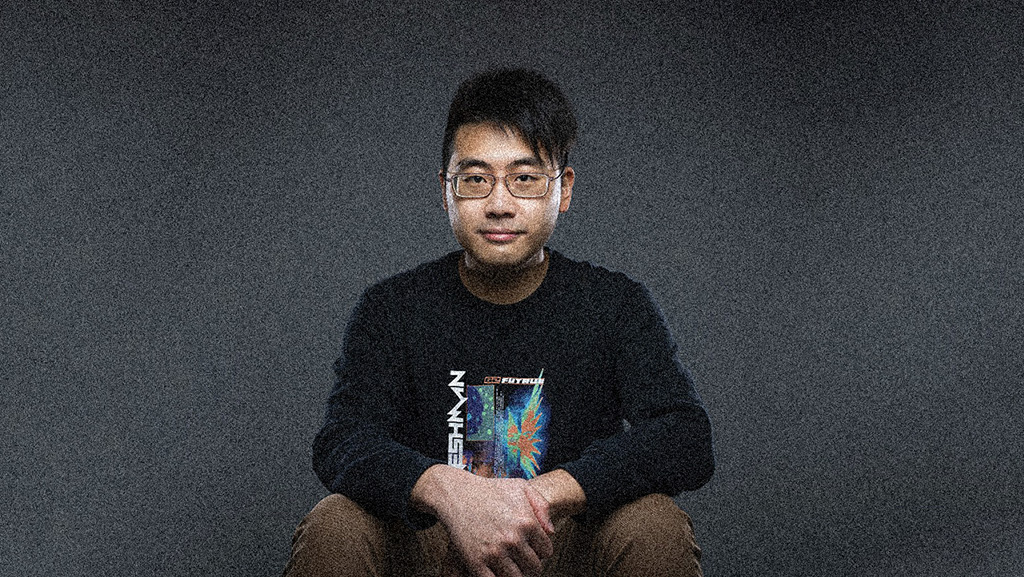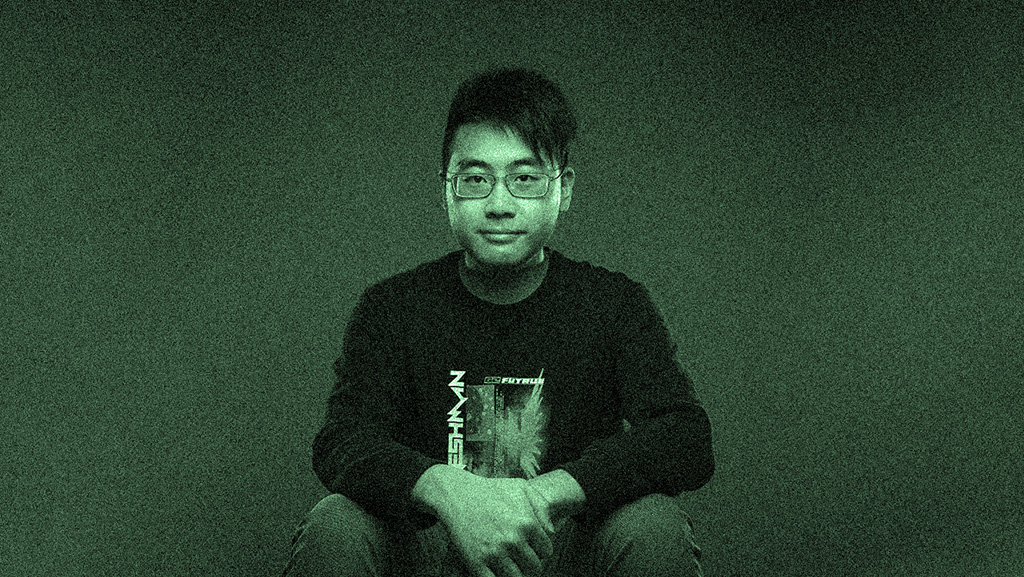Timothy Chau on Web3, Decentralization, and the Future of Technology
In this interview-style discussion, we have the privilege of engaging with Timothy Chau, a seasoned strategist and LinkedIn Certified Marketing Insider. With his deep insights into the concept of Web3 and its potential impact, Timothy takes us on a captivating journey through the evolving landscape of decentralized technologies.

Web3, characterized by blockchain, smart contracts, and decentralized applications, represents a paradigm shift in how we interact with digital assets, build communities, and redefine traditional business models. As we explore this transformative domain, we uncover the power of Web3 to empower individuals, foster trust and sovereignty, and revolutionize industries across the globe.
In our conversation, Timothy shares his initial attraction to Web3 and its potential to reshape the entrepreneurial landscape. He sheds light on the current state of Web3 adoption and development, highlighting significant milestones achieved thus far. We delve into the challenges that need to be overcome for Web3 to achieve mainstream adoption, including the importance of user experience and mindset.
Through the wisdom and expertise of Timothy Chau, we gain valuable insights into the possibilities that lie ahead and the role we can play in shaping the future of technology. Let’s embark on this adventure together and embrace the exciting world of Web3!
Interviewer: What initially attracted you to the concept of Web3 and its potential impact?
Timothy Chau: The people and the possibilities are what initially drew me to Web3. I witnessed the passion of individuals chasing their dreams in this space. I often compare Web3 projects to a massive Kickstarter website, especially when it comes to NFTs. People mint projects or purchase tokens to support the founding team’s vision, accessing global liquidity and building communities that empower everyone involved.
Interviewer: How would you describe the current state of Web3 adoption and development, and what are the most significant milestones achieved so far?
Timothy Chau: The sheer number of projects and wallets created speaks volumes about the adoption and development of Web3. The blockchain as a digital ledger is the key differentiator between Web2 and Web3. The more people believe in it, the more we can realize the concept of digital assets and unlock new opportunities. However, to achieve mass adoption, the user journey must be seamless. We need to shift the narrative from speculation and fast results to building sustainable projects with longevity in mind. One interesting milestone is the attraction of mainstream institutions that recognize the permanence of the technology and the community.
Interviewer: In your opinion, what are the main challenges or barriers that need to be overcome for Web3 to achieve mainstream adoption?
Timothy Chau: Shifting the user mindset is crucial. We must view Web3 as a technology that empowers and generates real revenue. Once the focus shifts from token prices to actual product usage, we will witness a paradigm shift and be better positioned for mainstream adoption. True equity and inclusivity will be achieved when we ensure equal opportunities for all. Accessibility, ease of use, and delivering visible results are key factors in demonstrating the real value of Web3.
Interviewer: How does Web3 align with the principles of decentralization, trust, and individual sovereignty? What role does it play in empowering individuals?
Timothy Chau: The principles of decentralization, trust, and individual sovereignty are upheld through how people use technology rather than how technology inherently supports these principles. For example, having a DAO and issuing tokens doesn’t guarantee true decentralization if power is concentrated in the hands of a few token holders. True empowerment occurs when mass adoption ensures equal opportunities for everyone. Achieving this requires embracing inclusivity and fairness not only through mechanisms but also through mentality.
Interviewer: How do you envision Web3 transforming industries and traditional business models in the coming years?
Timothy Chau: Looking ahead, it seems that generative AI is more likely to disrupt industries and traditional business models. While blockchain technology is not new, the rapid development in smart contracts, fungible and non-fungible tokens, and decentralized finance has been remarkable. It’s intriguing to consider how generative AI could bring disruption to the Web3 space. For instance, using a GPT-based chatbot to create a friendlier onboarding process for decentralized finance websites. The pace of innovation in the space, coupled with human creativity, ensures that no machine can fully replicate human intellect.
Interviewer: What role does governance play in the Web3 ecosystem, and how do you see it evolving to ensure inclusivity and fairness?
Timothy Chau: In terms of governance, it’s crucial to differentiate between equity and equality. Achieving inclusivity and fairness goes beyond just implementing mechanisms; it requires embracing the right mentality. Additionally, the anonymous nature of most wallets poses challenges in providing equal opportunities to everyone. A collective shift in mindset is needed to ensure inclusivity and fairness in the Web3 ecosystem.
Interviewer: With the rise of Web3, how do you perceive the relationship between governments and decentralized technologies? Are there any regulatory challenges to be addressed?
Timothy Chau: The relationship between governments and decentralized technologies is intriguing. Viewing blockchain and Web3 as technological infrastructure rather than a narrative for governments opens up fascinating possibilities. Regulatory challenges certainly exist, especially with the emergence of central bank digital currencies (CBDCs) and the need for appropriate regulations. The landscape is continuously evolving, and it’s interesting to observe how much has changed in such a short period.
Interviewer: How can developers and entrepreneurs best contribute to the growth and development of the Web3 ecosystem? What opportunities exist for them?
Timothy Chau: Developers and entrepreneurs have a unique opportunity to leverage the Web3 ecosystem as an umbrella or common topic that brings people together and creates new possibilities. It’s about creating context on top of technology, building connections, and exploring opportunities. For example, owning a specific NFT or token grants access to a community with shared interests. By taking that first step, developers and entrepreneurs can ride the wave of Web3 and see where it leads them.
Interviewer: What advice would you give to individuals and businesses considering adopting Web3 technologies or integrating them into their existing systems?
Timothy Chau: In this current market, it’s important not to succumb to FOMO (fear of missing out) without understanding the technology. Reflect on your goals and ask yourself why you need to integrate this technology. What business challenges does it solve that cannot be addressed with Web2? Take the opportunity to try different dApps and engage with communities to gain knowledge and insights that can be integrated into existing systems. Web3 is like a massive Kickstarter website, where exploring real-life case studies and firsthand experiences is more valuable than merely reading about them.
Interviewer: Looking ahead, what are your predictions for the future of Web3? How do you see it evolving in the next five to ten years?
Timothy Chau: Predicting the future of Web3, particularly in terms of price volatility, is an exercise in futility. However, it’s clear that Web3 will continue to push the boundaries of technology and innovation. With ongoing advancements in blockchain, smart contracts, and decentralized applications, we can expect to see new use cases and novel applications emerge. The next decade will be an exciting time for Web3 as it evolves and revolutionizes various industries, creating unprecedented possibilities.
As our conversation with Timothy Chau comes to a close, it is evident that Web3 holds great promise for the future. With the potential to transform industries, empower individuals, and reshape traditional business models, it is a space ripe with opportunities. As we navigate this rapidly evolving landscape, it is crucial to maintain a user-centric mindset, ensure inclusivity, and embrace the true potential of decentralized technologies.




